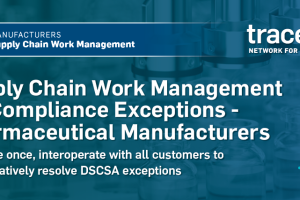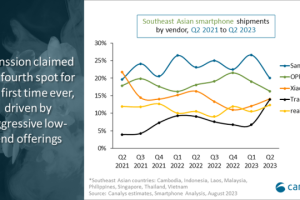Belives, Samarth Jain, Founder & CEO Positive Bioscience. In USA, while working on an assignment on Wall Street, Samarth came across upcoming Genomics technologies and how was revolutionizing the practice of medicine there. . After thorough research and preparation he started Positive Bioscience was started in October 2012.
Positive Bioscience is the leading genetics & molecular diagnostics company launched with the objective of bringing the latest and best in Clinical Genomics to India.
The company launched India’s first three personal genomics clinics at Medanta, the Medicity Hospital Delhi, Kokilaben Dhirubhai Ambani Hospital, Mumbai and Breach Candy Hospital, where people can undergo these tests to determine their health risks and prevent it. And plans to expand to 100+ Personal genomics clinic in next 3 years. The company is the exclusive India partner of the world’s leading genomics company Myriad Genetics, USA.
What is the concept underlying Positive Bioscience? Any model that you emulate?
We are a molecular diagnostic company, dedicated to making a difference in patients’ lives through making available, in India the best technologies in molecular genetic tests across major diseases.
Genetic testing involves examining an individual’s DNA. Genetic testing can reveal changes or alterations in genes that may cause illness or disease. We provide interpretational analysis of DNA based diagnostic tests for Cancer patients and healthy individuals. This analysis helps clinicians personalize the clinical management of cancer and other health conditions.
Our genomic tests that are designed to assess an individual’s risk for developing disease later in life (predictive medicine), accurately diagnose disease (diagnostic medicine), identify a patient’s likelihood of responding to a particular therapy and assess if a patient will benefit from a particular drug (precision medicine), and assess a patient’s risk of disease progression and disease recurrence (prognostic medicine).
Our services are provided in association with leading hospitals.
What are the technological advancements you have introduced lately in different verticals? Your core strengths?
Our core strengths are our deep understanding of genomics and its applications, our insights into the Indian health ecosystem, and our abilities in converting analysis into actionable reports. Members of our Scientific Advisory Board are experts who are global leaders in the field of genomics and have been pioneers in this area. We are partnering with the best, be it in the area of genomic technology or the hospitals in India.
This year, we introduced whole genome sequencing test for cancer, intended to aid oncologists select the best treatment for patients. A Next Generation Sequencing (NGS) sequencing test, it enhances the utility of comprehensive genomics profile manifold, bringing genomics test closer to clinical practice. It is the most advanced genomics test for cancer, detecting genomic alterations in 25,000 genes as compared to 4-5 genes through conventional testing.
In your opinion, what roles do emerging technologies like Big data play in the current technology adoption for healthcare vertical? Especially when we talk about patients suffering from cancer, heart diseases, stroke?
Genomics is a specialized field of study that encompasses the activities related to the sequencing, mapping, and analysis of a wide range of RNA and DNA codes. The vast amount of data outpours from genome sequencing, mapping, and analyzing has required this scientific field to embrace big data technologies. But it is a new kind of information. Over the last decade, research has focused on determining the correlation between genes and heredity, more specifically “heritable traits,” so that this knowledge can be put to the beneficial use of disease prevention and cure.
The tangible benefits of use of gene diagnosis and targeted therapies in the area of oncology,cancer, heart diseases, stroke and other non- communicable diseases indicate that the use of these in healthcare is only going to increase. Genomic analysis can be applied in clinical practice for:
- Identifying patients, who may be considered “high-risk” for a particular type of disease such as Type 1 Diabetes.
- Targeted treatments of diseases like cancer.
- High-quality information for screening drug candidates for toxicity and efficacy
- For predictive and preventive medicine
Personalized cancer treatments, based on genetic sequencing of individuals’ tumors to identify specific mutations driving the disease, will mean lesser sider effects, for the patient it will mean spending less time and cost in care.
Another major promise of genomic medicine is the control it can provide individuals over their own health. Thus a person who learns after a genomic test that he or she, for example, has significant increased risk of developing Type 2 Diabetes or of becoming obese, he/she has more motivation to change diet and lifestyle.
The public sector is still lagging in terms of technology adoption in India, more so for an essential sector like healthcare and Pharma. What do you think should be done to encourage the use of technology in providing better services to low cost healthcare needs?
The public sector has a very critical and important role to play in the Indian scenario. Adoption of technology, is often seen as expense, where as it should be seen as investment in strengthening the public healthcare systems. With a country, the size of India, technology can be a great enabler for reducing costs, making healthcare expertise accessible across the geographies and raising the standards of practice.
Government spending on primary healthcare, private- public collaboration in specialized areas of healthcare as well encouraging entrepreneurship and skill development are critical for better services to low cost healthcare needs.
While Big data is on the forefront of enterprise, do you think that healthcare and Pharmacan also benefit from it? What is public policy doing to leverage this technology?
Big data & analytics technologies are re-shaping the pharmaceutical and healthcare industry. Such a significant change needs investment from the government, and public- private partnership.
If we look at USA, The White House this month announced measures aimed at advancing the precision medicine initiative, including plans to speed the development of tests used to identify genetic mutations and guide medical treatment. The U.S. Food and Drug Administration said it planned to issue a proposal to create performance standards to guide development of next generation sequencing (NGS) tests. These tests scan a person’s DNA and identify genetic differences that could be responsible for a patient’s symptoms.
These kinds of initiatives that are needed at the policy level, to ensure that genuine players are only allowed to enter this very important sector.
How can a PPP be a better alternative to fully owned governmental healthcare schemes? Do you see the PPP initiatives as more efficient at delivery of services?
Absolutely – there are various aspects of research and development needed in revolutionizing the healthcare systems when a technology is about to turn the very concept of healthcare.
Governments need to focus on making funding available to entrepreneurs, laying out guidelines, contribute towards penetrating the rural and interiors of India through innovative practices. One can see this clearly in the banking sector, where policies have allowed private banks and financial products to reach the interiors. A similar approach that enables use of ICT, and encourages the healthcare sector to expand will only be possible with a PPP model.




























